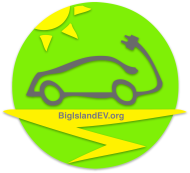This CleanTechnica article offers an explanation of the structural challenges being experienced by the German auto industry as it attempts to break into the electric vehicle market that is dominated by a relative newcomer – Tesla. It suggests that a key, one not yet fully mastered by the Teutonic giants, is technology, specifically software and data.
Tesla’s success is tied to its innovative leadership, a powerful mission, its design and engineering teams, and its deliberate upending of the insane status quo. Innovations powered by data and code, and unhampered by legacy features and business practices allowed it to be the ”octopus” mentioned in this article.
“The octopus is one of the most fascinating and intelligent animals in our seas. Scientists predict that if they didn’t die that early after the new generation is born, because of their ability to learn, they would be “the humans of the sea,” dominating all other sea animals large and small, just like humans do on soil.
An octopus has 8 arms, hence the name starting with “octo,” and each arm has its own little brain managing that arm. These 8 brains communicate with a central brain and scientists have not yet figured out how that all works and why their arms don’t get in the way.”
Tesla’s over-the-the air vehicle enhancements, ever-evolving battery tech, online sales, museum-like showrooms, SuperCharger network, supercar-spanking family sedans, autonomous driving functionality, ever-growing data on the cloud, … are some of the things that have made it different and effective in its mission. The company has inspired many to start following. It’s also inspired several ”Tesla-killers”, something that it welcomes as it cannot achieve its mission alone.
To succeed in our efforts to save our environment, we need our transportation – ground, air, sea – to be transformed so that it is not dependent on fossil fuels. This applies not only to vehicle propulsion – it must cover electricity generation, manufacturing, the supply chain, sales, maintenance, and end-of-life recycling. This is, undoubtedly, a difficult problem. Difficult but not impossible. Tesla can be seen as a proof-of-concept for the industry. Let’s hope the others really wake up before it really gets “bloody”.

